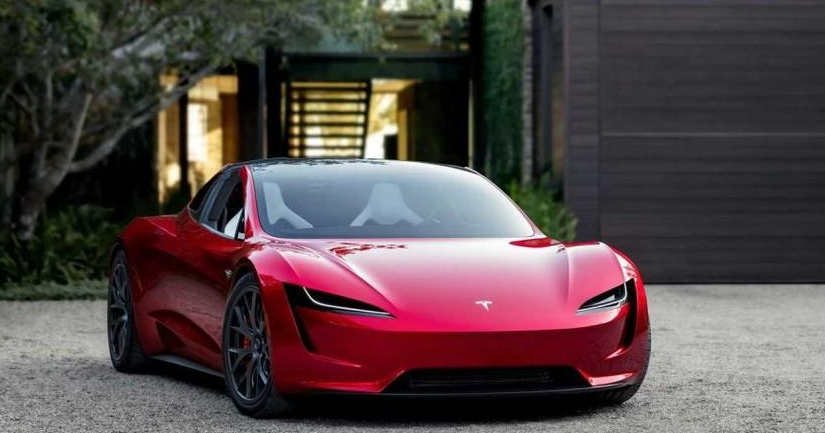The Rise of Chinese Automakers Poses Challenges for Tesla
Advertisements
- August 17, 2025
The landscape of the electric vehicle (EV) market is rapidly evolving, and recent trends indicate that Tesla, once a leading force in this space, is encountering significant challenges. On a gloomy Tuesday during the Eastern Time zone, reports emerged that Tesla's car sales in Europe had plummeted drastically, contributing to a steep decline in its stock price. This unexpected downturn sent Tesla's market valuation back below the $1 trillion mark for the first time in three months.
The mood among Tesla’s long-term investors has soured, with many expressing concern about the company’s future as competition intensifies, particularly from Chinese manufacturers like BYD. The mounting pressure from these rivals looms large over what was once a seemingly unassailable monopoly in the EV market.
From the newly released statistics by the European Automobile Manufacturers Association, the magnitude of Tesla's predicament is stark. In January, the company's sales in Europe dwindled to 9,945 units. This figure marks a staggering 45% drop from the same month a year prior, resulting in a decrease of Tesla’s share in new car registrations from 1.8% to just 1%. These figures are alarming, especially considering that overall electric vehicle sales in Europe soared by 37.3% during the same period. This contradiction highlights a significant disconnect in Tesla's performance compared to the broader EV market growth, where electric vehicles now account for approximately 15% of all new car sales.
The immediate fallout from this news was severe, as Tesla's stock price experienced a sharp decline, dipping over 10% during trading, with the value briefly sinking below $300. By the end of the trading day, shares closed at 302.80, a drop of around 8.39%. Consequently, Tesla's market capitalization fell to $974 billion, representing a new low not seen since last November.

Earlier in the month, Bank of America had adjusted Tesla’s stock rating downgrading it from 'buy' to 'neutral.' Analyst John Murphy attributed the reassessment to the company’s overinflated valuation compared to its actual performance and the burgeoning risks it faces in operations. Amid this climate of uncertainty, Tesla's price-to-earnings ratio remained rather lofty at 112, in stark contrast to its American competitors such as Ford and General Motors, whose PE ratios stood at a mere 8 and 7, respectively.
The challenges confronting Tesla in Europe are not a mere flash in the pan but are part of a broader trend. In 2022, Tesla's sales in the European Union fell by 13%, with Germany—an important market—seeing an even more staggering 41% decline. January 2023 bore witness to particularly troubling figures for Tesla in Germany, recording its lowest monthly sales since mid-2021 with only 1,277 new registrations.
Underlying these sales declines is the rapid emergence of formidable Chinese competition. The rise of companies like BYD, equipped with significant advances in technology and a competitive product lineup, poses a direct threat to Tesla’s once-dominant position. For example, BYD has been successful in establishing a nuanced foothold in the European market, contributing to an explosion in car registrations across the continent. January saw SAIC Motor Corporation (which includes the MG brand) reporting a remarkable 37% increase in new car registrations in Europe, propelled by competitive pricing and a diverse range of offerings.
BYD stands out as a beacon in this competitive landscape. The company has made significant strides in the realms of battery technology and electric drive systems, establishing its prowess through several proprietary innovations, including its famed blade batteries, renowned for both their safety and energy density. Models such as the BYD Han and Tang have gained tremendous traction not only domestically but also in international markets, demonstrating their potential for global expansion. The company's robust approach to penetrating emerging markets further enhances its competitiveness, allowing it to rival Tesla effectively.
For Tesla insiders, concerns are growing about the long-term viability of their investments. Ross Gerber, CEO of Gerber Kawasaki Wealth Management, has recently highlighted that the slowdown in sales may spell prolonged difficulties for Tesla's stock. He has gone on record stressing that external influences, including CEO Elon Musk's off-brand distractions and limitations surrounding Tesla's fully autonomous driving technology, could compound existing challenges.
Gerber attributes a potential drop of 50% in Tesla's stock this year to these sales issues. He emphasized the growing prowess of local Chinese electric vehicle brands like BYD that capitalize on their domestic advantages. With the Chinese government heavily investing in the EV sector and fostering indigenous manufacturers, this support means that Tesla faces significant competition not just in China, but also in international markets where brands like BYD are penetrating with vigor.
“BYD is an exceptional company; everyone in emerging markets wants to buy a BYD,” he stated, reflecting the sentiment that Chinese brands are not only catching up to Tesla, but in many cases, are outpacing it. As the electric vehicle market continues to evolve, the question remains: Can Tesla regain its former glory, or will it cede ground to these increasingly capable competitors?
Leave A Comment